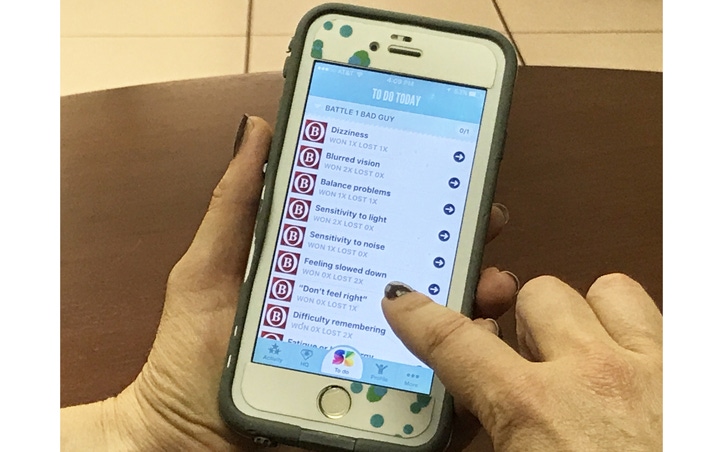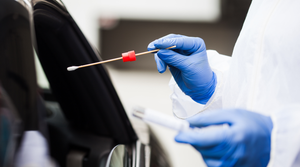There's an App for Everything—Why Not Concussions?
While concussions are a common medical condition, there are few apps designed to help patients recover. Research is revealing that some concussion apps seem to help patients, and this may ultimately bring a powerful, ubiquitous device to the fight against long-term concussion injury.
September 20, 2017

Health has been a popular category ever since the arrival of the first smartphone apps. Handheld devices provide unprecedented computing to everyone, and everyone is concerned about their health.
However, although concussions are a common medical condition, there are few apps designed to help patients recover. One reason is that the delivery device has an electronic screen, and physicians are well aware that screen time has the potential to delay concussion recovery. Now, this conventional wisdom is cautiously starting to evolve. If concussion apps are carefully controlled and screen time is limited, the technology seems able to help patients.
It is an emerging finding that may ultimately bring a powerful, ubiquitous device to the fight against long-term concussion injury.
Concussion Is a Struggle for the Mind
The effects of concussion—technically, mild traumatic brain injury—can extend for months if patients are not immediately treated or if treatment is not followed carefully.
During recovery, many patients experience troubling symptoms, from severe headaches to depression. Even worse, if concussions become a somewhat regular occurrence, there is evidence they can lead to permanent brain damage, what doctors now call chronic traumatic encephalopathy.
Here at The Ohio State University Wexner Medical Center, we see hundreds of concussion patients every year, and we are constantly trying to find new ways to treat them. Recognizing that social networks can be key to helping concussion patients stave off depression and other long-term effects, we began searching out options for our patients. Apps quickly came to mind.
Apps That First Do No Harm
The main focus of existing concussion apps is identifying symptoms. To prevent more severe brain injury, parents and coaches need to know when to take a player off the field or how to recognize unusual behavioral symptoms. For example, Concussion Recognition & Response by PAR, Inc., is one such app.
However, some apps are beginning to emerge to directly help concussion patients. The Department of Veterans Affairs has one example, called Concussion Coach, and NYU Langone Medical Center is actively studying another, called Concussion Tracker.
At Ohio State, we designed a small-scale study to evaluate the safety of app screen time while trying to bring back each patient's social network—critically important for teens and other young patients. Everyone needs really good personal connection when going through a difficult time.
Calling out for Support
Working with Dr. Kelsey Logan, director of sports medicine at Cincinnati Children's Hospital, we partnered with game developer Jane McGonigal, whose mobile app, SuperBetter, was previously found effective for treating depression. The app tackles health challenges by involving close friends and families as “allies” and reframing personal health barriers within a heroic narrative. In fact, McGonigal developed this app while recovering from her own concussion and while her screen time was limited.
With support from the National Institutes of Health, our study targeted concussion symptoms and optimism in teens by using the app's game-like approach to fighting symptoms, such as headaches or blurred vision, and incorporated a key family member or friend as an ally to begin restoring the familiar, online social network.
Some teens were allowed to add the SuperBetter app to their recovery plan in limited-time sessions, while others continued with standard treatment alone. For patients without the app, half saw symptoms improve and half did not, while optimism remained unaffected. For patients who used the app, every participant saw symptoms improve and optimism improved overall.
Physicians and researchers alike are becoming more aware of smartphone apps as a concussion treatment option, but before they can become widely used for treatments, large-scale studies will be necessary. Such studies will help doctors determine exactly how much screen time is safe, how well patients adhere to those time limits and other app guidance, and identify patients for whom dangers will outweigh benefits. As important as safety, the apps must be proven effective to ultimately qualify for approval from FDA.
For concussion, healing requires close attention to subtle signs, and as more research reveals how best to incorporate apps, smart devices will soon help patients navigate what can be a complex and trying recovery.
Register for the MD&M Minneapolis Conference and Expo, November 8-9, 2017.
About the Author(s)
You May Also Like


